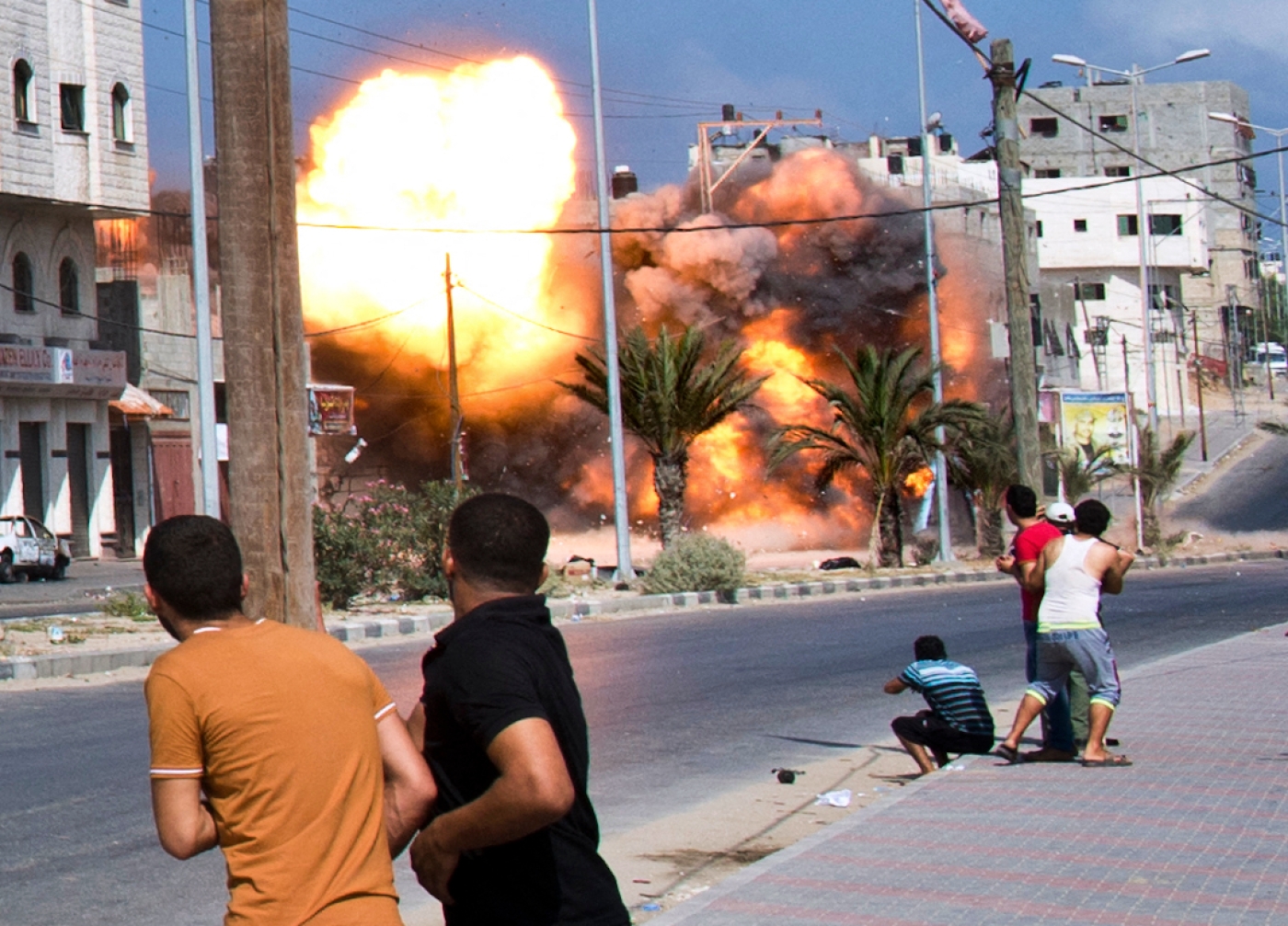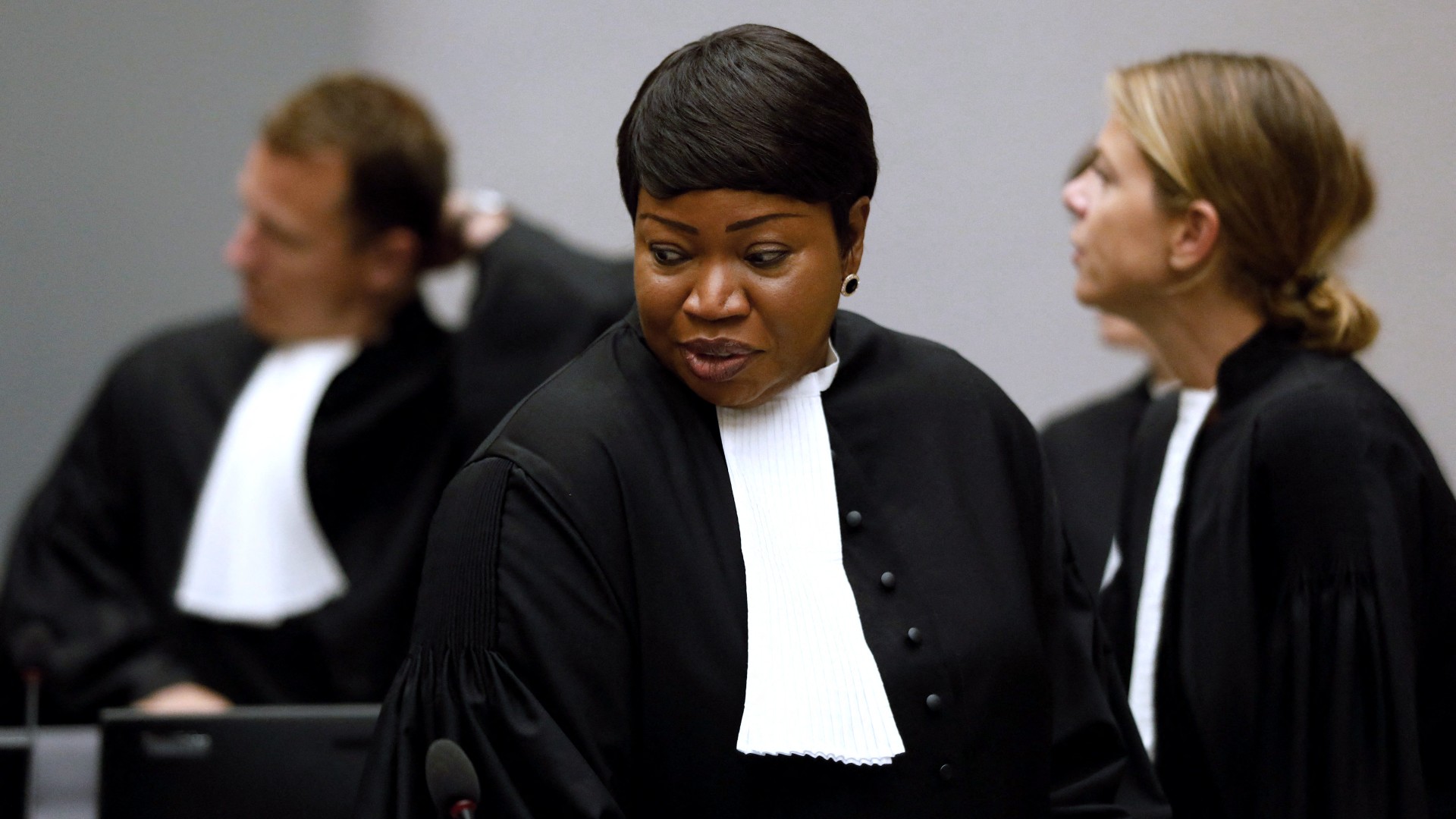When it comes to war crimes, Britain looks the other way

There can now be not a scintilla of doubt that Russian troops have committed gross war crimes in Bucha, Irpin and Borodyanka. As more areas around the Ukrainian cities of Kyiv and Kharkiv are liberated, more and more details of the carnage will emerge.
They dumped the bodies in wells and pits. They left bodies unburied for weeks. They threatened at gunpoint people trying to rescue their neighbours buried in the rubble of bombardment.
Russian troops shot village leaders who refused to collaborate, along with their families. They raped women, according to a Ukrainian MP. They used civilians as human shields.
The Russian invasion of Ukraine merits the closest of international legal scrutiny
Cars of families trying to flee with the word "dyeti" (children) taped on them were found riddled with bullets.
They treated the whole population as "Nazi". The evidence from intercepted communications alone between Russian commanders and their units is overwhelming.
Stay informed with MEE's newsletters
Sign up to get the latest alerts, insights and analysis, starting with Turkey Unpacked
Claims by the Russian permanent representative to the UN, Vasily Nebenzya, that civilian deaths are faked, that bodies were brought in by Ukrainian soldiers and dumped on the streets after Russian troops left are simply not credible.
Russian units with no time to conceal their crimes in mass graves left ample evidence of them. Better to stay silent rather than to compound one lie with another. And it is also true that the only fit place to judge crimes of these dimensions is an international war crimes tribunal.
The Russian invasion of Ukraine merits the closest of international legal scrutiny.
Obstruction of justice
Calls are rightly multiplying for a war crimes investigation. There is one small problem.
Today, the very countries that are calling for international justice in relation to the behaviour of Russian troops are the same countries that have consistently subverted and delayed inquiries into the documented war crimes committed in their own name.
Ukraine is exactly the reason why Nato allies - principally the US and Britain - should have been scrupulous about maintaining the framework of international justice when their troops were doing the invading and the bombing.
Not only did they fail to fully investigate their own crimes. They actively obstructed bodies like the International Criminal Court (ICC) from working. This obstruction of justice has lasted decades and continues to this day with all the vigour it can muster.
The spearhead of their assault on the international justice was former US president Donald Trump's decision to sanction the ICC's chief prosecutor Fatou Bensouda and Phakiso Mochochoko, another senior prosecution official.
Trump declared their investigations into US war crimes in Afghanistan and Israeli crimes in Palestine "a national emergency". Additionally, Mike Pompeo, then secretary of state, announced that the United States had restricted the issuance of visas for certain unnamed individuals "involved in the ICC's efforts to investigate US personnel".
US President Joe Biden lifted the sanctions on the ICC, but his administration continues to condemn and oppose its investigation into war crimes committed by all parties Israeli and Palestinian.
When the ICC at last confirmed it was opening an investigation into Israeli actions in Palestine, US Secretary of State Antony Blinken said in a statement: "The ICC has no jurisdiction over this matter. Israel is not a party to the ICC and has not consented to the Court's jurisdiction, and we have serious concerns about the ICC's attempts to exercise its jurisdiction over Israeli personnel.
"The Palestinians do not qualify as a sovereign state and therefore are not qualified to obtain membership as a state in, participate as a state in, or delegate jurisdiction to the ICC."
Blinken's tone is less abrasive and more thoughtful than Pompeo's, but the policy is unchanged.
Looking the other way
Mangling the Russian language, this week British Prime Minister Boris Johnson appealed directly to Russians about what was being done in their name in Ukraine. Johnson said it was a betrayal of the trust of every mother "who proudly waves goodbye to her son as he heads off to join the military".
This video was misconceived at every level.
Today, the very countries that are calling for international justice on the behaviour of Russian troops have consistently subverted and delayed inquiries into the documented war crimes committed by their troops
Conscription is feared and Russians will go to extraordinary attempts to avoid it. When the unavoidable moment comes, the parting is more like a funeral wake than a celebration.
Oblivious to real life in Russia, Johnson ended with the following warning: "Those responsible will be held to account and history will remember who looked the other way."
How does a prime minister of the UK expect to be taken seriously when Britain itself has "looked the other way" countless times?
The list is inexhaustible. Tony Blair rewarded the war crimes Putin committed in Chechnya from 1999 to 2003 by arranging for the blood-soaked Russian leader to meet the Queen. In Grozny, Russian troops cleared the cellars in which civilians were sheltering by throwing grenades into them. George W Bush even conscripted Putin's war against Chechnya into his own war on terror.
US-led coalition bombers in Iraq assaulted a whole population. They called it "shock and awe". Estimates of Iraqi deaths triggered by that invasion vary from under 300,000 to over a million. Brown University's Costs of War Project calculated that at least 500,00 people perished in the post 9/11 US wars in Afghanistan, Iraq and Pakistan.
Attempts to investigate the killing and torture of civilians in Afghanistan and Iraq have been repeatedly undermined.
Investigation undermined
Abandoning its inquiry into claims that British troops committed war crimes in Iraq between 2003 and 2008, ICC prosecutor Bensouda noted that, despite a decade of domestic investigations, no charges had been brought against any soldiers - "a result that has deprived the victims of justice".
"The fact that the allegations investigated by the UK authorities did not result in prosecutions does not mean that these claims were vexatious. At most it means that the domestic investigative bodies could not sustain sufficient evidence to refer the cases for prosecution, or on cases referred there was not a realistic prospect of conviction in a criminal trial," Bensouda noted.
Wikileaks did more than anyone else to publicise war crimes in Iraq, notably releasing classified footage from an Apache helicopter on an attack on a dozen civilians, including two journalists, in a suburb of Baghdad. Julian Assange, the man responsible, is now in the UK's Belmarsh prison awaiting extradition to the US on charges of violating the Espionage Act.
Britain looked the other way when on 14 May 2018 more than 60 unarmed Palestinians were shot dead by Israeli forces as they demonstrated near Gaza's perimeter fence. War crimes are committed virtually every week when Palestinians are shot dead by Israeli troops.
Johnson branded the ICC investigation into the 2014 Gaza war and settlements building in the occupied West Bank, as well as Hamas's rocket attacks from Gaza, as "an attack on Israel".

Britain actively participated in Barack Obama's drone strikes. The US president used them 10 times as often as his predecessor George Bush did. A total of 563 strikes, largely by drones, targeted Pakistan, Somalia and Yemen during Obama's two terms, compared to 57 strikes under Bush.
Between 384 and 807 civilians were killed in those countries, according to reports logged by the Bureau of Investigative Journalism.
The UK continues, also, to look the other way in Yemen, where the projected death toll by the end of 2021 was 377,000. It refused to follow the US in stopping arms sales to Saudi Arabia.
Only after years of pressure and a letter from 100 MPs, did the UK agree to financially support witnesses in the Gambia's referral of the Myanmar genocide of the Rohingya to the ICC.
But the UK itself is still not a formal party to the proceedings.
The stain on our conscience
Of all the calls for a war crimes tribunal in Ukraine, the most obscene one comes from Israel itself.
It's a country built on war crimes. Even before the state was created, there was the Tantura massacre. Then came Kafr Kassim, Khan Younis, Sabra and Shatila, the wars in Lebanon, each operation in Gaza. The list of massacres perpetrated by Israeli forces is so long that it forms its own alphabet.
Of all the calls for a war crimes tribunal in Ukraine, the most obscene one comes from Israel itself
Only a year ago, former Israeli prime minister Benjamin Netanyahu called the ICC investigation into Israeli and Palestinian war crimes "antisemitic". Today, Yair Lapid, the foreign minister, broke the country's taboo on attacking Russia by accusing it of war crimes.
Without any intended irony, Lapid said: "A large and powerful country has invaded a smaller neighbour without any justification. Once again, the ground is soaked with the blood of innocent civilians."
How then can leading western nations hope to secure an internationally functioning justice? It is needed. Ukraine screams for it. How large is the stain on our conscience? And why is it that when the West talks about war crimes, few in the Middle East, Asia, Africa and South America listen anymore?
What gives Britain the right to preach about a rules-based world order against autocrats, when its wars - done in the name of democracy and accountability - have visited such terrible damage on innocent people?
Under bombardment, civilians find it hard to be told they are dying in a just cause.
One Iraqi, speaking about the experience of "shock and awe" in his homeland, could just as easily be a Ukrainian speaking about the Russian invasion today:
"I call it really a dirty war because they want to get it over fast. So they are targeting either the water stations, electric station, and all the essential things for the people, which is - that's not good. Everywhere you live, at least there is something important to hit."
The world needs an international criminal court that functions in every war. To carry any credibility, a war crimes investigation needs to investigate the summary killings of both sides, Russian and Ukrainian.
To cast a wide net of impunity over the strongest armies in the world is to condemn the creation of the only coalition that matters, to bring those who break the rules of war to justice.
The views expressed in this article belong to the author and do not necessarily reflect the editorial policy of Middle East Eye.
Middle East Eye delivers independent and unrivalled coverage and analysis of the Middle East, North Africa and beyond. To learn more about republishing this content and the associated fees, please fill out this form. More about MEE can be found here.








